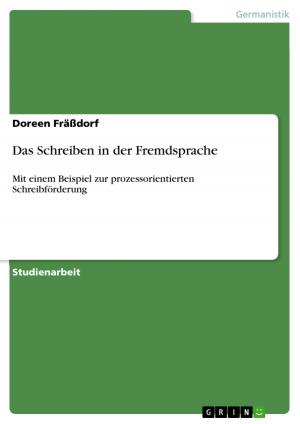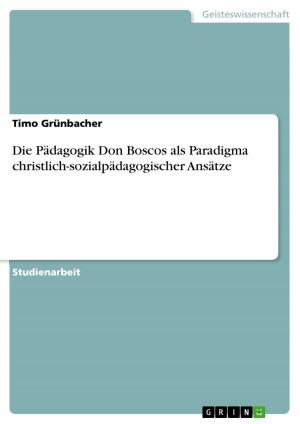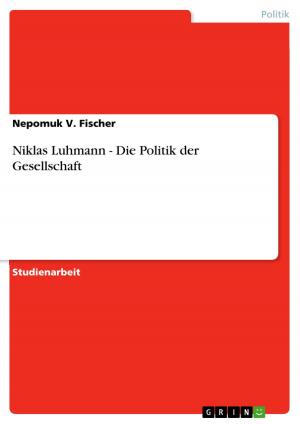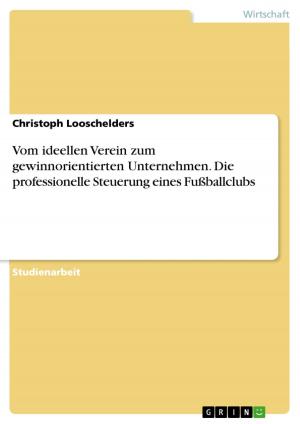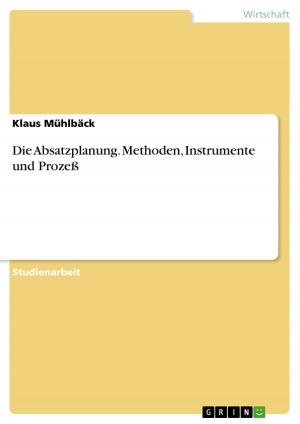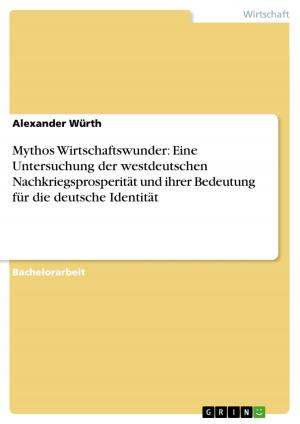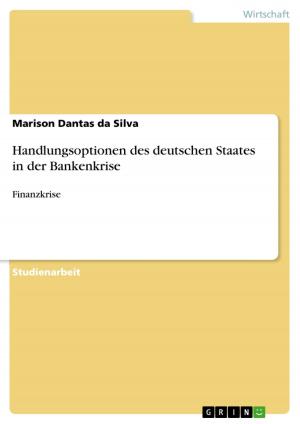National awakening and nationalism of the Ukrainian nation from Cossack time to the beginning of the 20th century
Nonfiction, Social & Cultural Studies, Political Science, Politics, History & Theory| Author: | Nico Rausch | ISBN: | 9783640171262 |
| Publisher: | GRIN Verlag | Publication: | September 22, 2008 |
| Imprint: | GRIN Verlag | Language: | English |
| Author: | Nico Rausch |
| ISBN: | 9783640171262 |
| Publisher: | GRIN Verlag |
| Publication: | September 22, 2008 |
| Imprint: | GRIN Verlag |
| Language: | English |
Seminar paper from the year 2007 in the subject Politics - Political Systems - History, grade: 1,3, Vilnius University, 7 entries in the bibliography, language: English, abstract: To describe the Ukrainian nationalism I will also use the famous concept from the Czech historian Hroch who is dividing the national movements into three phases. Phase 1) cultural awakening- a small group of educated people develops an interest in language, history and folklore of an ethnic group. Phase 2) national agitation- the implementation of national consciousness into a wider circle of the population in order to mobilize them and to integrate them into a national community which will lead to Phase 3) mass movement with its goal of political autonomy (Hroch in Kappeler 2001/ Weeks 1996). The case of Ukraine is in this sense not very easy to look at because of several events, in form of national policies of two influential Empires. Another interesting theoretical point of view is the distinction between 'ancient' and 'young' nations and their prospects to form a successful national movement. The former having a tradition of a national elite, and high culture, and the latter not. Young nations also have an incomplete social structure and almost no urban middle class. They also are fighting first primarily against the foreign elite and less against the state. The main aim is to create firstly a high culture of their own. Ukraine is seen as such a 'small' or 'young' nation (Kappeler 2001). I will describe Ukrainian nationalism in the context of modernization and mobilization through social, economic and political changes as well as on special events that might had a greater impact on the Ukrainian nationalism. The time period covered in this paper will be from the starting point of pre-historical Ukrainian 'nation' to the reenactment of the above described third phase of national mass movement.
Seminar paper from the year 2007 in the subject Politics - Political Systems - History, grade: 1,3, Vilnius University, 7 entries in the bibliography, language: English, abstract: To describe the Ukrainian nationalism I will also use the famous concept from the Czech historian Hroch who is dividing the national movements into three phases. Phase 1) cultural awakening- a small group of educated people develops an interest in language, history and folklore of an ethnic group. Phase 2) national agitation- the implementation of national consciousness into a wider circle of the population in order to mobilize them and to integrate them into a national community which will lead to Phase 3) mass movement with its goal of political autonomy (Hroch in Kappeler 2001/ Weeks 1996). The case of Ukraine is in this sense not very easy to look at because of several events, in form of national policies of two influential Empires. Another interesting theoretical point of view is the distinction between 'ancient' and 'young' nations and their prospects to form a successful national movement. The former having a tradition of a national elite, and high culture, and the latter not. Young nations also have an incomplete social structure and almost no urban middle class. They also are fighting first primarily against the foreign elite and less against the state. The main aim is to create firstly a high culture of their own. Ukraine is seen as such a 'small' or 'young' nation (Kappeler 2001). I will describe Ukrainian nationalism in the context of modernization and mobilization through social, economic and political changes as well as on special events that might had a greater impact on the Ukrainian nationalism. The time period covered in this paper will be from the starting point of pre-historical Ukrainian 'nation' to the reenactment of the above described third phase of national mass movement.


